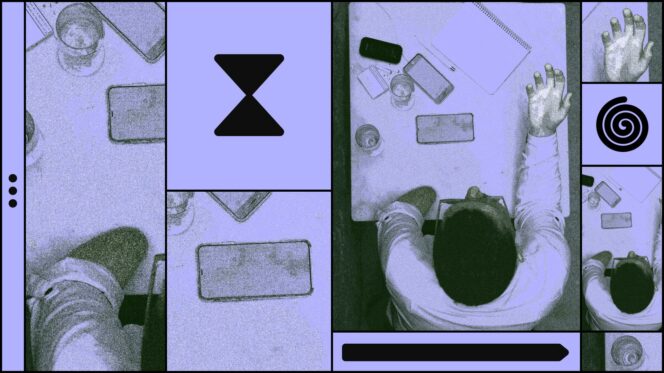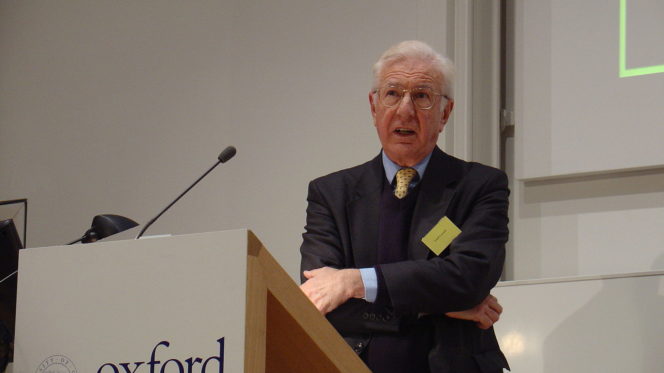Yes, Mental Health Counts As Disability
Just as our society is constructed around people whose ‘physical’ bodies work a certain way, it is also built to centre people who think, feel and act a certain way.
by Micha Frazer-Carroll
18 November 2021

Listen to this article as audio:
When I worked on mental health campaigns at university, I would often advise students with mental distress to seek support from the disability service. If a student had a diagnosis of, say, anxiety – which was staggeringly common in the student population – they might be entitled to reasonable adjustments, like extended deadlines, or their own private room for exams. But the suggestion that mental health fell under disability usually provoked the same response: “you mean, it counts?”
Many students were reluctant to accept that mental distress could qualify them as disabled. Some felt identifying as disabled would be taking up space or co-opting a label that wasn’t theirs. Others, no doubt, were deterred by the disableist stigma that surrounds the word. At least one in five UK students has a mental health condition, but the membership of our disabled students’ campaign was decidedly small.
Outside of universities, this confusion is reflected in mainstream conversations about mental health too. Popular mental health writing, usually memoirs and personal essays, scarcely mentions disability.
None of this is helped by dominant recovery narratives, which reify mental health conditions as an unfortunate, temporary and individual state that – with a positive mindset – we will hopefully quickly “recover” from. It’s also further complicated by an artificially imposed binary between body and brain, which positions our perceptions, behaviour and emotions as entirely separate from the more objective “medical facts” of our “physical bodies”.
It’s important to note that even on a legal level, mental distress falls squarely within the criteria for disability, as outlined by the Equality Act 2010. The legislation, which covers England, Wales and Scotland, defines disability as: “a physical or mental impairment that has a ‘substantial’ and ‘long-term’ negative effect on your ability to do normal daily activities”. Of course, by this definition, mental health “counts”.
But to truly interrogate the relationship between mental health and disability as an identity, we need to look beyond the law and inject politics into the conversation. This requires engaging with the way that disability is constructed as a category. A good place to start is the social model of disability – a framework for understanding that evolved from conversations between disabled people, activists and sociologists in the 1970s. First committed to writing by a UK organisation called the Union of the Physically Impaired Against Segregation (Upias), the original definition resisted the dominant medical model, and explained:
“In our view it is society which disables physically impaired people. Disability is something imposed on top of our impairments by the way we are unnecessarily isolated and excluded from full participation in society.”
While members believed they had physical “impairments”, they said the act of disablement was overwhelmingly a social one, imposed by a disableist society through acts like the segregation of disabled people and the refusal to make even basic adjustments like building ramps. The most textbook illustration of the social model is the image of a wheelchair user confronted with a set of stairs at the entrance to a building. According to the social model, the problem isn’t that the person uses a wheelchair – the problem is that the building has stairs.
The social model is far from a perfect or holistic framework for understanding disability. But in the history of disabled activism, it represented an important paradigm shift, away from locating the fact of disablement inside people’s bodies, and instead looking at the ways that society systematically excludes and oppresses people because their bodies and brains don’t fit a specific “norm”.
This has implications for how we think about the disablement of people with mental distress: just as our society is constructed around people whose “physical” bodies work a certain way, it is also built to centre people who think, feel and act a certain way. In the same way that other disabilities can see you institutionalised and excluded from mainstream society, if you are suicidal, have compulsions or hear voices, you might be detained under the Mental Health Act and forcibly put on a ward. Just as full-time, 9-5 work is inaccessible to people with, say, chronic illnesses, depression or anxiety can stop a person from getting out of bed and making it to the office. And like other types of disability, many people who experience mental distress are similarly reliant on gatekeeping doctors for access to medication or therapy. The more political lens of the social model reveals clear parallels – in fact, significant overlaps – in our embodied experiences under a capitalist, disableist society.
The disabled community has never been an exclusive club; it’s a space where people understand and acknowledge the diversity of disability and how it manifests. When people with mental health conditions question if their experiences “count”, they are often comparing themselves against an imagined idea of the archetypal “genuinely disabled” person (more often than not, this idea perpetuates misconceptions around “physical disability” too) – forgetting that up to 70% of all disabilities in the UK are invisible. Scarcity mindset should play no role in our organising and community-building – there is enough room for all of us under the disability umbrella.
This leads us to a crucial note on solidarity. By calling ourselves disabled, people with mental distress nod towards a broader community of people who are oppressed in varied, but interlinked and overlapping ways. It connotes a specific political understanding of what it means to live as a pathologised person in our society and can be a powerful tool for solidarity – resisting all narratives of us v them.
There is no obligation to define as disabled. Someone might feel that despite having a mental health condition, they just don’t come up against significantly disabling barriers in their day to day life. Others might see their mental health as a more transient state, rather than a part of their identity. But the choice is theirs, and the door is open to them – by all means, it “counts”.
This article is part of a focus on disability. Read more here.
Micha Frazer-Carroll is a writer and journalist who has worked for gal-dem and the Independent.
She is the author of Mad World: The Politics of Mental Health, out now from Pluto.


